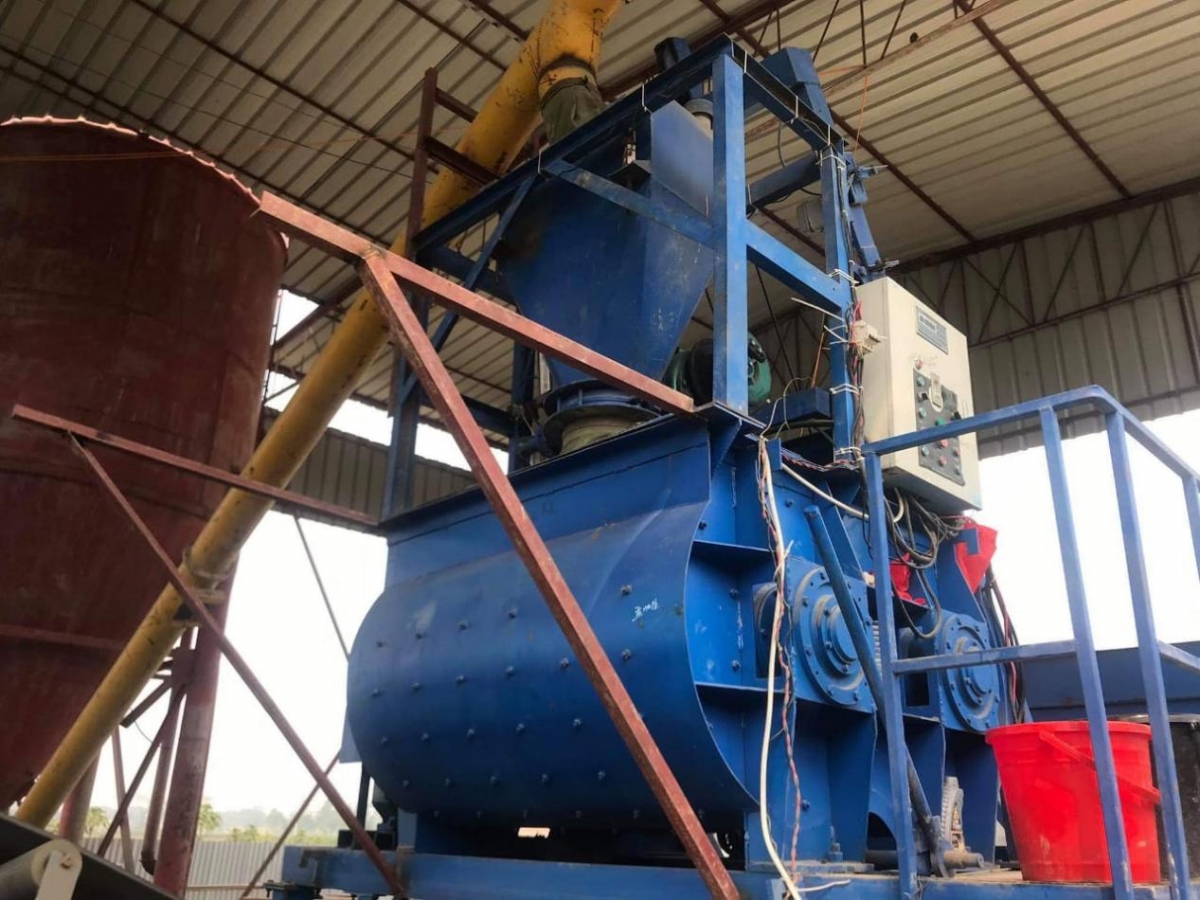- 28
- Feb
How does the block making machine ensure uniformity in block sizes?
RAYTONE is a leading manufacturer of block making machines in China. With years of experience and innovation, we have established a strong reputation for providing high-quality machines and exceptional customer service. Our block making machines utilize advanced technology and precision engineering to produce durable and precise blocks for a variety of construction purposes. We offer both manual and automatic machines, catering to the different needs and requirements of our customers.
The manual machines are designed for smaller-scale production, ideal for homeowners or small businesses looking to produce blocks for personal use or for simple construction projects. These machines are user-friendly, easy to operate and require minimal maintenance. On the other hand, our automatic machines are suitable for larger-scale production, providing high efficiency and productivity. These machines can produce a wide range of block sizes and shapes, making it versatile for various construction needs. Equipped with advanced PLC control systems, these machines are highly automated, ensuring consistent and precise block production.
In addition to our standard machines, we also offer customization services to meet specific customer demands. Our team of experts will work closely with our customers to design and produce machines that cater to their unique requirements. All of our machines are made with high-quality materials and undergo strict quality control to ensure top-notch performance and durability. Our company is also committed to environmental sustainability, utilizing energy-saving technology and eco-friendly materials in our manufacturing process.
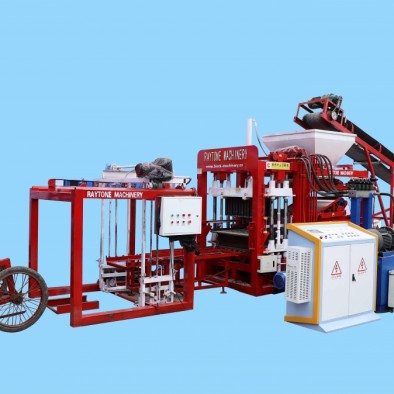
Our cutting-edge block machine offers the latest in design and functionality, making it the perfect choice for all your block-making needs. With advanced features such as precision mold technology, adjustable brick sizes, and automatic stacking, our machine allows for faster production and improved quality control. Plus, with its sleek and modern design, it will be a standout addition to any production facility. Say goodbye to outdated and inefficient machines, and say hello to the future of block-making with our cutting-edge design.
The revolutionary Block Machine is a groundbreaking solution that combines efficiency and automation to completely transform traditional block manufacturing processes. With its advanced technological capabilities, this machine greatly reduces the manual labor and time required for block production. Its automated features ensure a precise and consistent production process, resulting in high-quality blocks every time. Whether used for construction, landscaping, or other applications, the Block Machine delivers unparalleled efficiency and reliability. Say goodbye to labor-intensive and time-consuming methods – the future of block manufacturing has arrived.
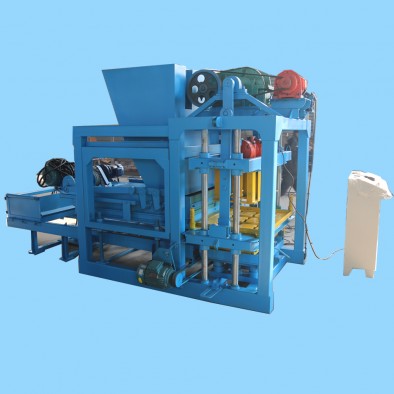
Block making machine, also known as brick making machine, is a device that produces concrete blocks or bricks in various shapes and sizes. It plays an important role in the construction industry by providing a cost-effective and efficient solution for producing building materials. With the advancement of technology and the increasing demand for sustainable building materials, block making machines have evolved to become more versatile and eco-friendly. In this article, we will delve deeper into the functionalities and benefits of block making machines and explore how they have revolutionized the way we build structures.
2.How does the block making machine handle the addition of colorants or dyes to the blocks?
3.How does the block making machine control the density of the blocks?
4.Can a block making machine produce both hollow and solid blocks?
5.What quality control measures are in place during the production process of a block making machine?
6.What is the role of the mold in a block making machine?
7.Can a block making machine produce colored blocks?
8.What maintenance is required for a block making machine?
9.How does the block making machine handle uneven or irregularly shaped raw materials?
10.What is the difference between a fully automatic and semi-automatic block making machine?
1.How does the block making machine handle waste materials?
The block making machine handles waste materials by incorporating them into the production process to create new blocks. This process is known as waste utilization or recycling. The machine crushes and mixes the waste materials with other raw materials such as cement, sand, and water to form a new mixture. This mixture is then compressed and molded into blocks using the machine’s molds and hydraulic pressure.
The waste materials that can be used in this process include construction and demolition waste, fly ash, slag, and other industrial by-products. These materials are crushed and sieved to remove any impurities before being added to the mixture.
The block making machine can also handle plastic waste by melting it and mixing it with the raw materials to create plastic blocks. This process not only reduces waste but also helps in reducing the use of natural resources such as sand and gravel.
The machine also has the capability to handle organic waste such as rice husks, sawdust, and other agricultural waste. These materials are added to the mixture to improve the strength and insulation properties of the blocks.
Overall, the block making machine plays a crucial role in handling waste materials by converting them into useful and sustainable building blocks. This not only helps in reducing waste but also contributes to a more environmentally friendly construction industry.
2.How does the block making machine handle the addition of colorants or dyes to the blocks?
The block making machine typically has a separate compartment or hopper for adding colorants or dyes to the blocks. The colorants or dyes are usually in powder or liquid form and are added to the raw materials (such as cement, sand, and water) before they are fed into the machine. The machine then mixes the colorants or dyes with the raw materials to create colored blocks. The amount of colorant or dye added can be adjusted to achieve the desired color intensity. Some block making machines also have the capability to mix different colors to create multi-colored blocks.
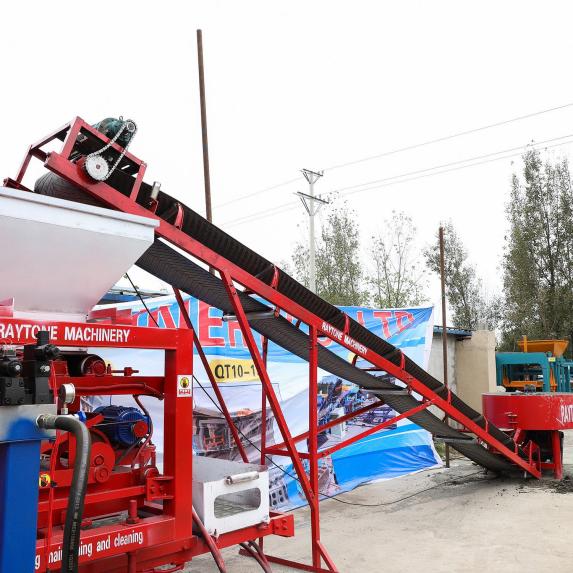
3.How does the block making machine control the density of the blocks?
The block making machine controls the density of the blocks by adjusting the amount of pressure applied during the compaction process. This is typically done through the use of hydraulic systems that can be adjusted to apply more or less pressure to the block molds. The machine also controls the amount of water and cement mixture used in each block, which can also affect the density. Additionally, the machine may have sensors or gauges that monitor the density of the blocks as they are being formed, allowing for adjustments to be made in real-time.
4.Can a block making machine produce both hollow and solid blocks?
Yes, some block making machines have the capability to produce both hollow and solid blocks. These machines have interchangeable molds that can be easily switched out to produce different types of blocks. However, some machines may only be able to produce one type of block, so it is important to check the specifications of the machine before purchasing.
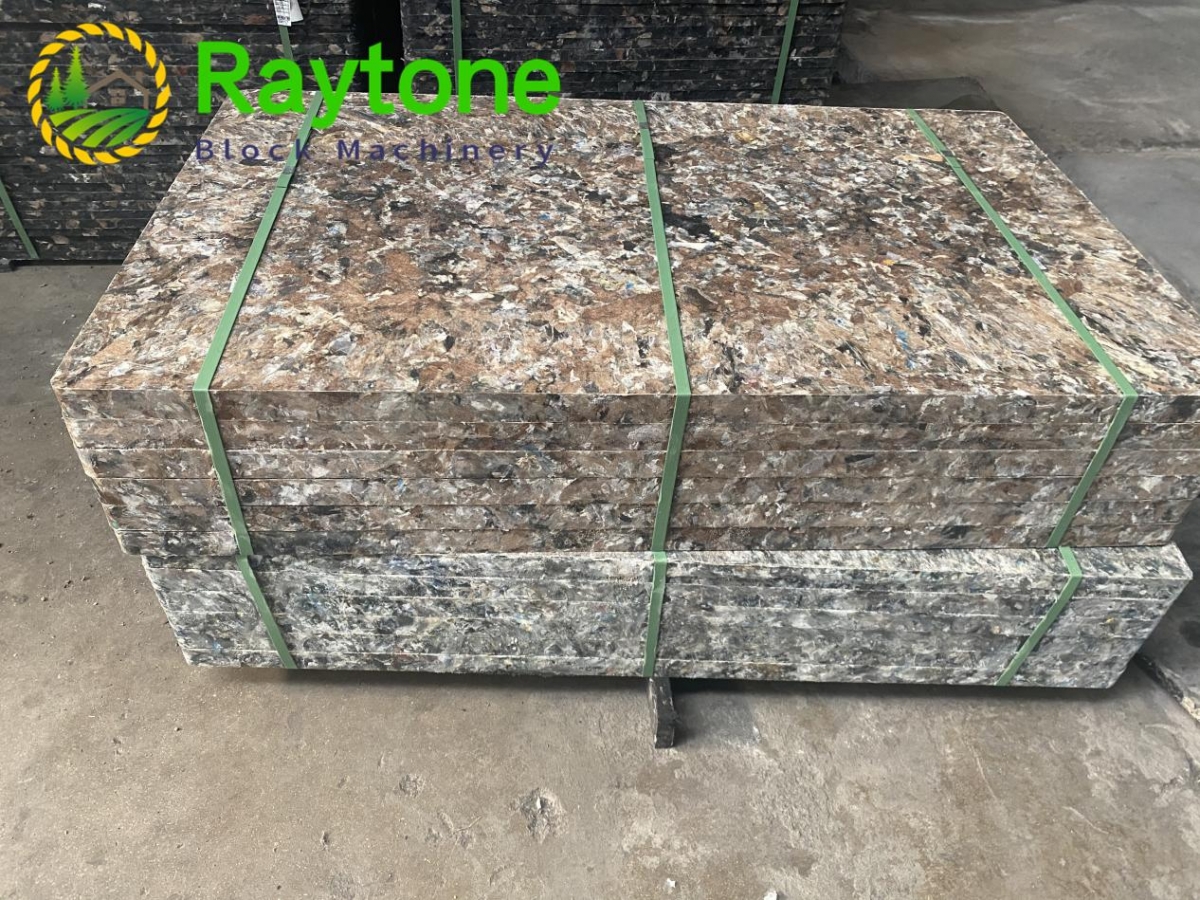
5.What quality control measures are in place during the production process of a block making machine?
1. Raw Material Inspection: The first step in the production process is to inspect the quality of the raw materials used in making the block making machine. This includes checking the dimensions, strength, and durability of materials such as steel, cement, sand, and aggregates.
2. Machine Calibration: Before starting the production process, the block making machine is calibrated to ensure that it is functioning properly and producing blocks of the desired size and shape.
3. Regular Maintenance: The machine is regularly maintained and serviced to ensure that it is in good working condition. This includes checking and replacing any worn-out parts, lubricating moving parts, and cleaning the machine.
4. Quality Control Checks: Throughout the production process, quality control checks are conducted to ensure that the blocks being produced meet the required standards. This includes checking the dimensions, strength, and density of the blocks.
5. Testing of Blocks: Samples of blocks are periodically taken from the production line and tested for strength and durability. This helps to identify any issues with the production process and make necessary adjustments.
6. Operator Training: The operators responsible for running the block making machine are trained on the proper techniques and procedures to ensure consistent quality of the blocks being produced.
7. Documentation and Record Keeping: All quality control checks and test results are documented and kept for future reference. This helps to track any issues that may arise and make improvements to the production process.
8. Quality Management System: Many block making machine manufacturers have a quality management system in place to ensure that all processes and procedures are followed correctly and consistently.
9. Third-Party Inspections: Some manufacturers may also have third-party inspections to verify the quality of their products and ensure that they meet industry standards.
10. Customer Feedback: Customer feedback is also an important aspect of quality control. Manufacturers may gather feedback from customers to identify any issues and make necessary improvements to their production process.
6.What is the role of the mold in a block making machine?
The mold in a block making machine is responsible for shaping and forming the concrete or other material into the desired block shape. It is a crucial component of the machine as it determines the size, shape, and texture of the blocks being produced. The mold is designed to be durable and precise, ensuring that each block is consistent in size and shape. It also allows for easy removal of the formed block from the machine. The mold can be customized to produce different types of blocks, such as hollow, solid, or interlocking blocks, depending on the specific needs of the project. Overall, the mold plays a critical role in the block making process, ensuring the production of high-quality and uniform blocks.

7.Can a block making machine produce colored blocks?
Yes, a block making machine can produce colored blocks by adding pigments or dyes to the concrete mixture before it is poured into the machine. The machine will then mold and compress the colored concrete mixture into blocks of the desired shape and size.
8.What maintenance is required for a block making machine?
1. Regular Cleaning: The block making machine should be cleaned regularly to remove any dirt, debris, or residue that may accumulate during the production process. This will help to prevent any build-up that could affect the machine’s performance.
2. Lubrication: The moving parts of the machine, such as the bearings, chains, and gears, should be lubricated regularly to ensure smooth operation and prevent wear and tear. It is important to use the recommended lubricants for each specific part.
3. Inspection and Replacement of Worn Parts: The machine should be inspected regularly for any signs of wear and tear. Any worn or damaged parts should be replaced immediately to prevent further damage to the machine.
4. Calibration: The machine should be calibrated regularly to ensure that it is producing blocks of the correct size and shape. This will help to maintain the quality of the blocks and prevent any production issues.
5. Electrical and Mechanical Maintenance: The electrical and mechanical components of the machine should be checked regularly to ensure they are functioning properly. Any faulty components should be repaired or replaced immediately.
6. Training and Education: Proper training and education should be provided to the operators of the machine to ensure they are using it correctly and following all safety protocols. This will help to prevent any accidents or damage to the machine.
7. Storage: When the machine is not in use, it should be stored in a dry and clean environment to prevent rust and corrosion. It is also important to cover the machine to protect it from dust and other contaminants.
8. Regular Servicing: It is recommended to have the machine serviced by a professional at least once a year. This will help to identify any potential issues and ensure the machine is running at its optimal performance.
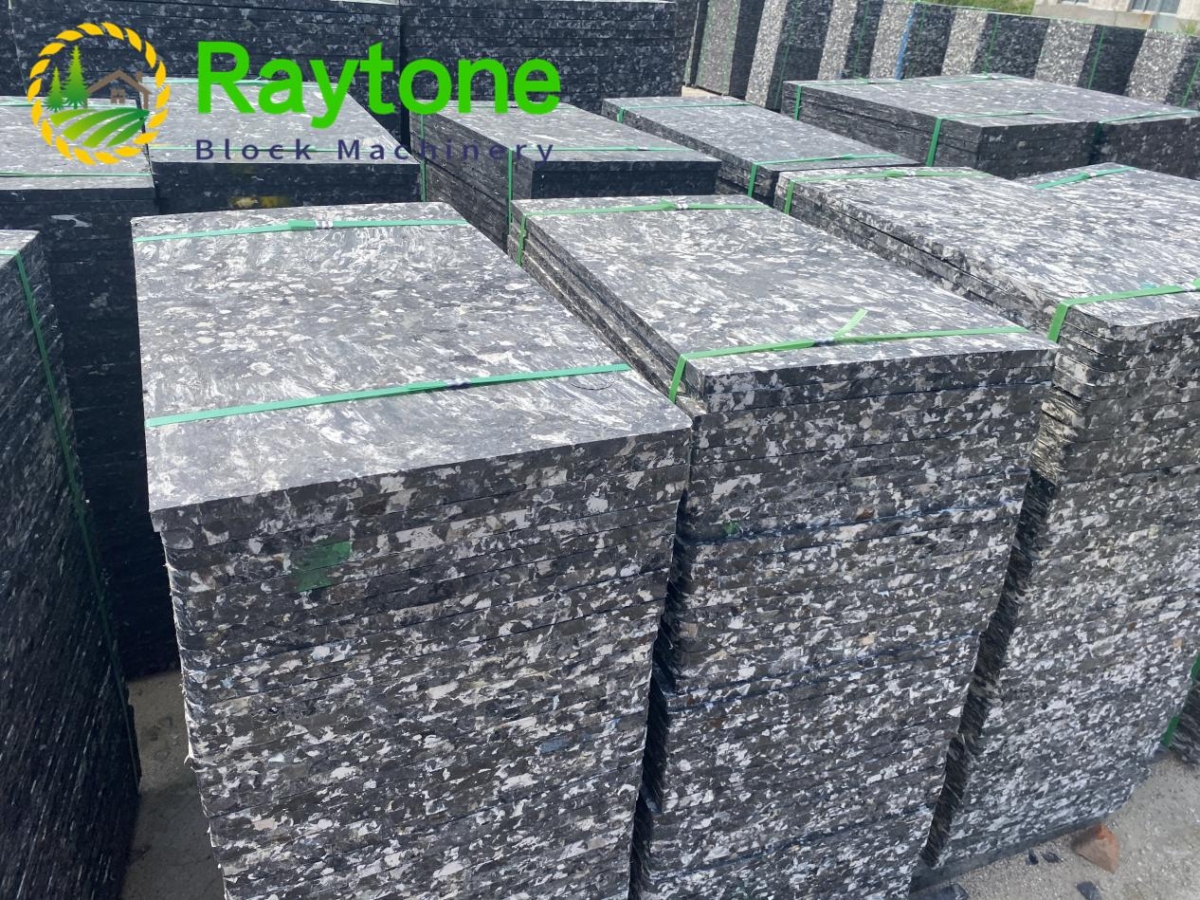
9.How does the block making machine handle uneven or irregularly shaped raw materials?
The block making machine is designed to handle uneven or irregularly shaped raw materials in the following ways:
1. Adjustable Molds: The molds used in the block making machine can be adjusted to accommodate different sizes and shapes of raw materials. This allows for flexibility in the production process and ensures that the blocks are of uniform size and shape.
2. Vibrating Table: The block making machine is equipped with a vibrating table that helps to settle the raw materials evenly in the mold. This ensures that the blocks have a smooth and even surface, regardless of the shape of the raw materials.
3. Hydraulic Pressure: The block making machine uses hydraulic pressure to compress the raw materials into the desired shape and size. This pressure can be adjusted according to the type and shape of the raw materials, ensuring that the blocks are properly formed.
4. Cutting Mechanism: Some block making machines are equipped with a cutting mechanism that can trim the edges of the blocks to make them more uniform in shape. This is especially useful for irregularly shaped raw materials.
5. Manual Adjustment: In some cases, the operator may need to manually adjust the raw materials to ensure they are properly aligned in the mold. This can be done by hand or with the help of tools provided with the machine.
Overall, the block making machine is designed to handle a variety of raw materials, including uneven or irregularly shaped ones. With its adjustable molds, vibrating table, hydraulic pressure, cutting mechanism, and manual adjustment options, it can produce high-quality blocks regardless of the shape of the raw materials.
10.What is the difference between a fully automatic and semi-automatic block making machine?
A fully automatic block making machine is a machine that can operate without any human intervention. It can automatically mix, mold, and stack the blocks without the need for manual labor. It is equipped with advanced technology and sensors that can control the entire process.
On the other hand, a semi-automatic block making machine requires some level of human intervention. It can perform some tasks automatically, such as mixing and molding, but it still requires manual labor for other tasks, such as stacking the blocks. It is less advanced and relies on manual control for certain functions.
